Realism.ppt
- Количество слайдов: 26
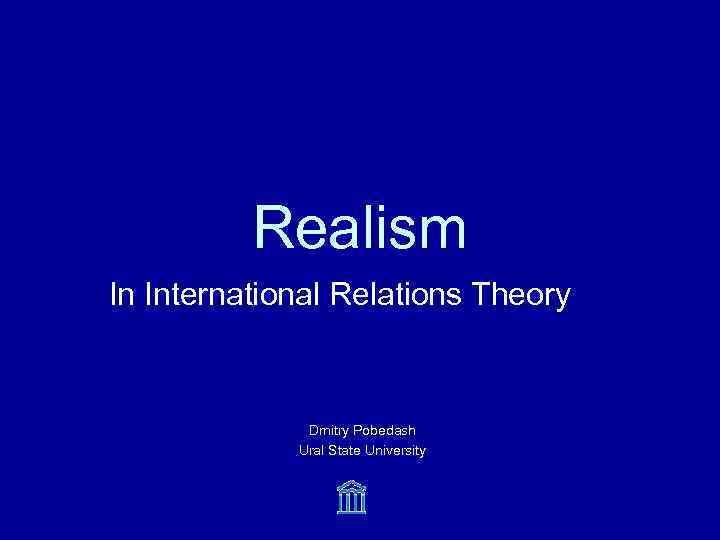
Realism In International Relations Theory Dmitry Pobedash Ural State University
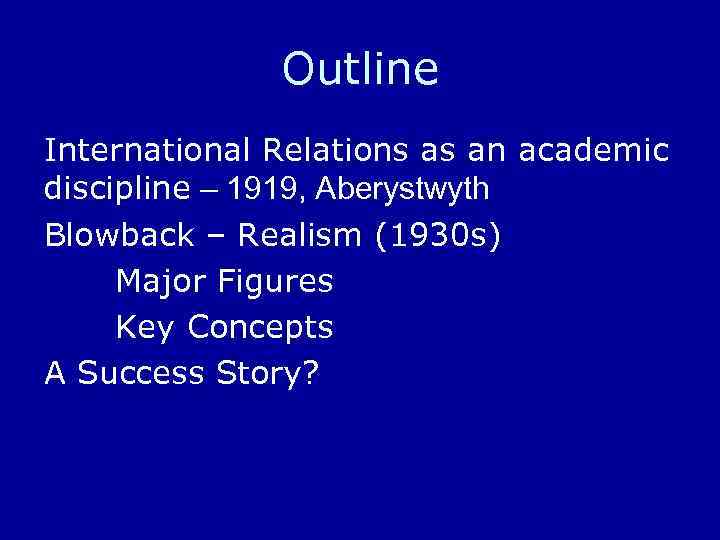
Outline International Relations as an academic discipline – 1919, Aberystwyth Blowback – Realism (1930 s) Major Figures Key Concepts A Success Story?
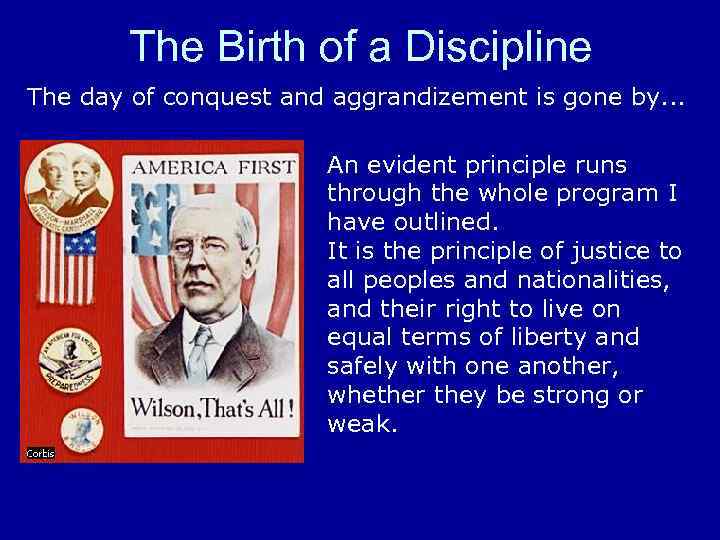
The Birth of a Discipline The day of conquest and aggrandizement is gone by. . . An evident principle runs through the whole program I have outlined. It is the principle of justice to all peoples and nationalities, and their right to live on equal terms of liberty and safely with one another, whether they be strong or weak.
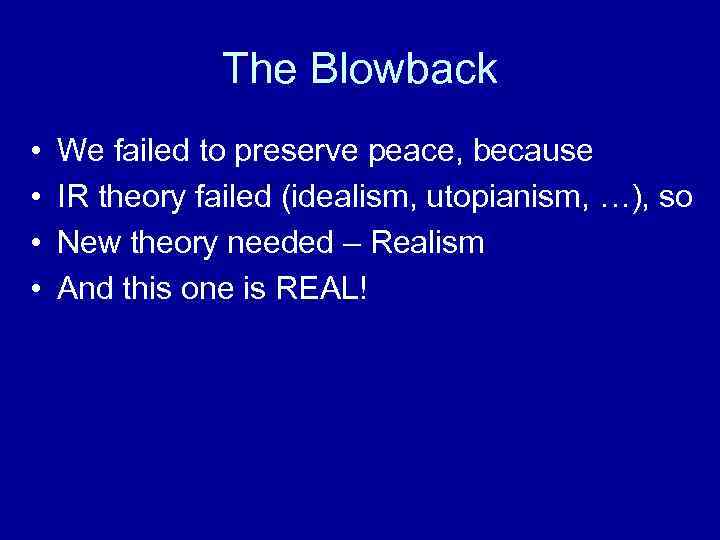
The Blowback • • We failed to preserve peace, because IR theory failed (idealism, utopianism, …), so New theory needed – Realism And this one is REAL!
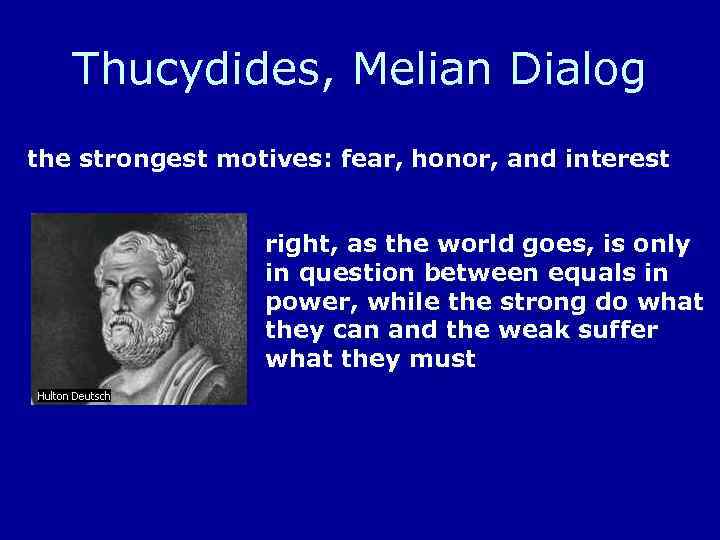
Thucydides, Melian Dialog the strongest motives: fear, honor, and interest right, as the world goes, is only in question between equals in power, while the strong do what they can and the weak suffer what they must
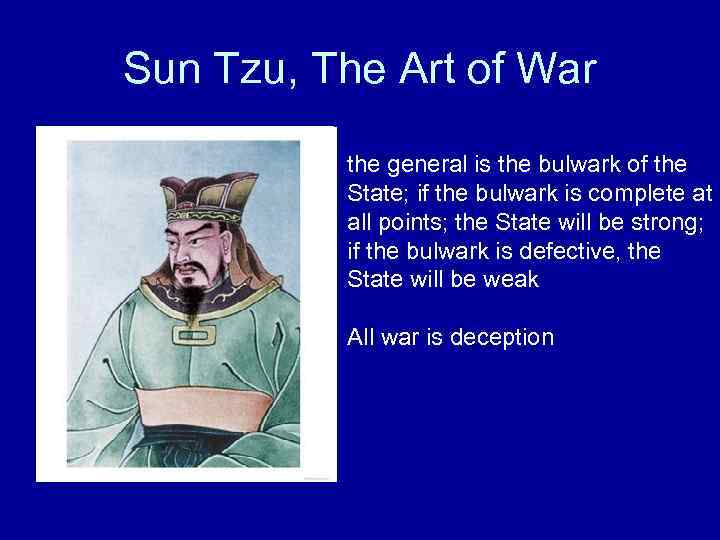
Sun Tzu, The Art of War the general is the bulwark of the State; if the bulwark is complete at all points; the State will be strong; if the bulwark is defective, the State will be weak All war is deception
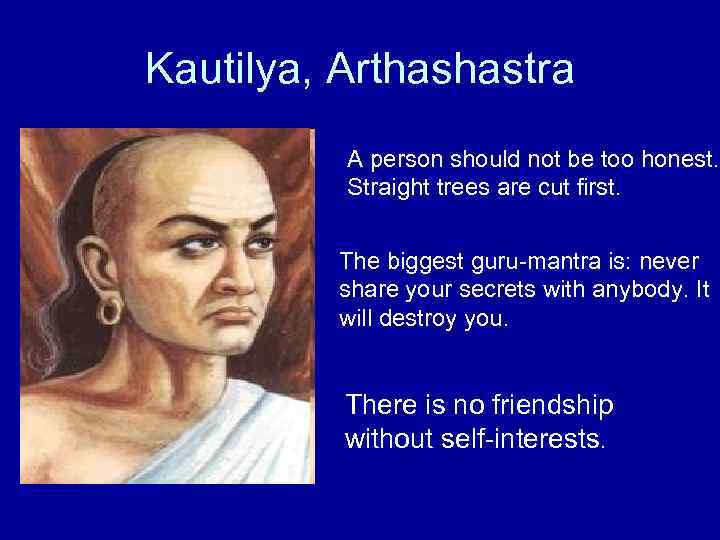
Kautilya, Arthashastra A person should not be too honest. Straight trees are cut first. The biggest guru-mantra is: never share your secrets with anybody. It will destroy you. There is no friendship without self-interests.
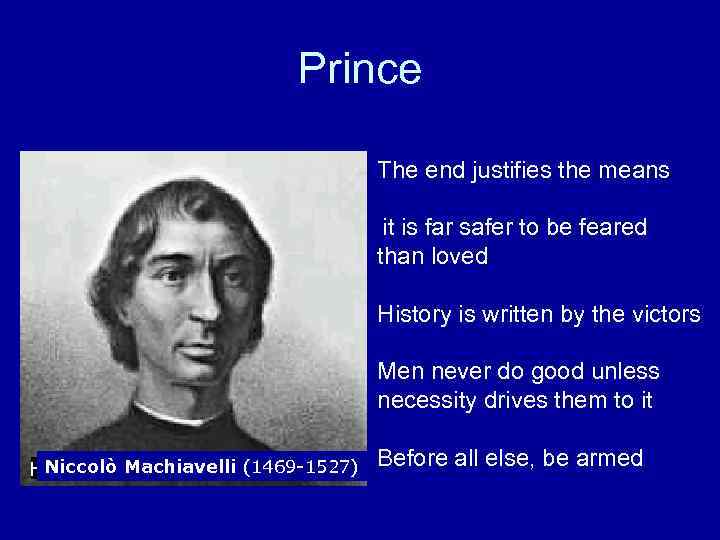
Prince The end justifies the means it is far safer to be feared than loved History is written by the victors Men never do good unless necessity drives them to it Niccolò Machiavelli (1469 -1527) Before all else, be armed
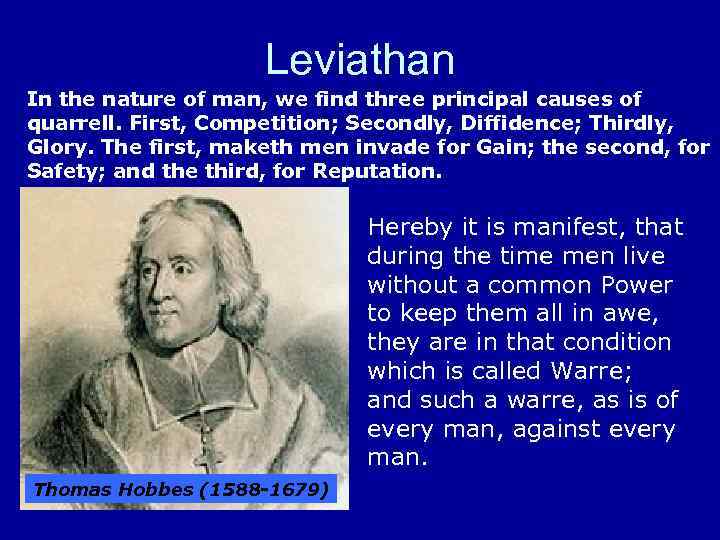
Leviathan In the nature of man, we find three principal causes of quarrell. First, Competition; Secondly, Diffidence; Thirdly, Glory. The first, maketh men invade for Gain; the second, for Safety; and the third, for Reputation. Hereby it is manifest, that during the time men live without a common Power to keep them all in awe, they are in that condition which is called Warre; and such a warre, as is of every man, against every man. Thomas Hobbes (1588 -1679)
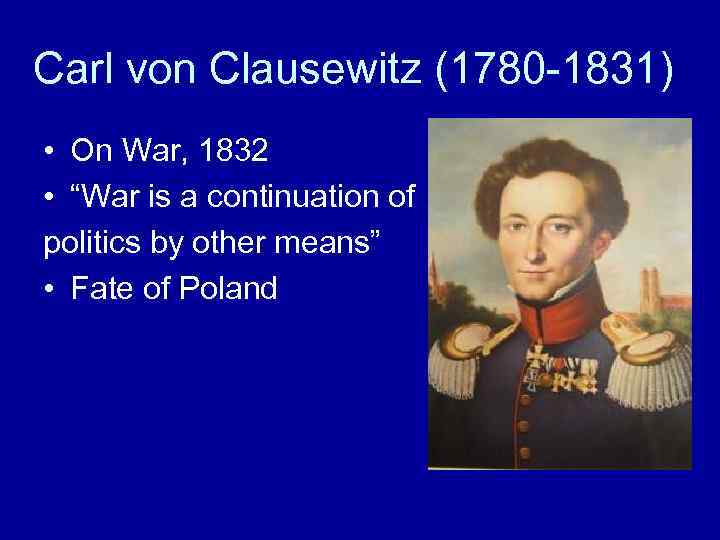
Carl von Clausewitz (1780 -1831) • On War, 1832 • “War is a continuation of politics by other means” • Fate of Poland
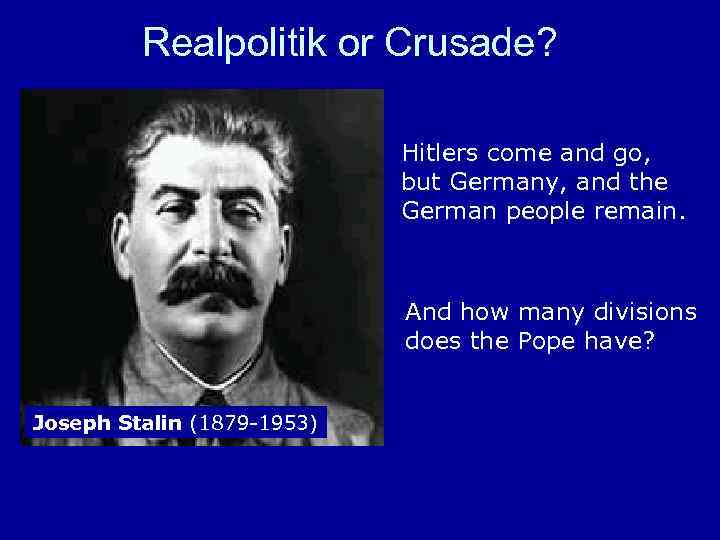
Realpolitik or Crusade? Hitlers come and go, but Germany, and the German people remain. And how many divisions does the Pope have? Joseph Stalin (1879 -1953)
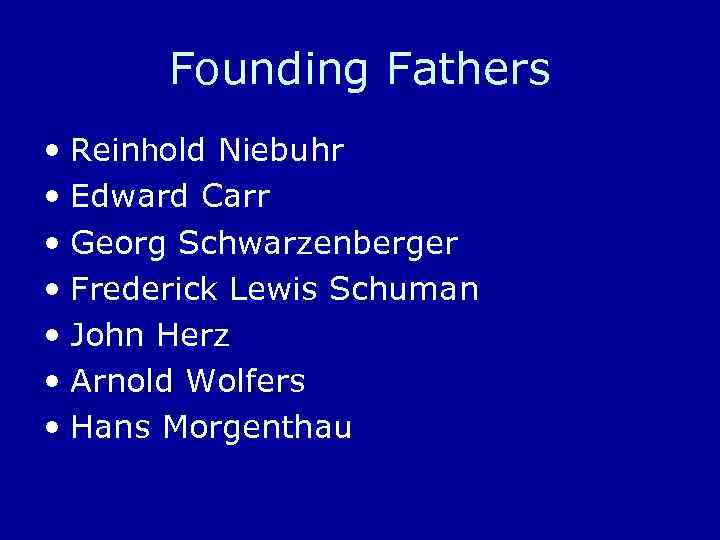
Founding Fathers • Reinhold Niebuhr • Edward Carr • Georg Schwarzenberger • Frederick Lewis Schuman • John Herz • Arnold Wolfers • Hans Morgenthau
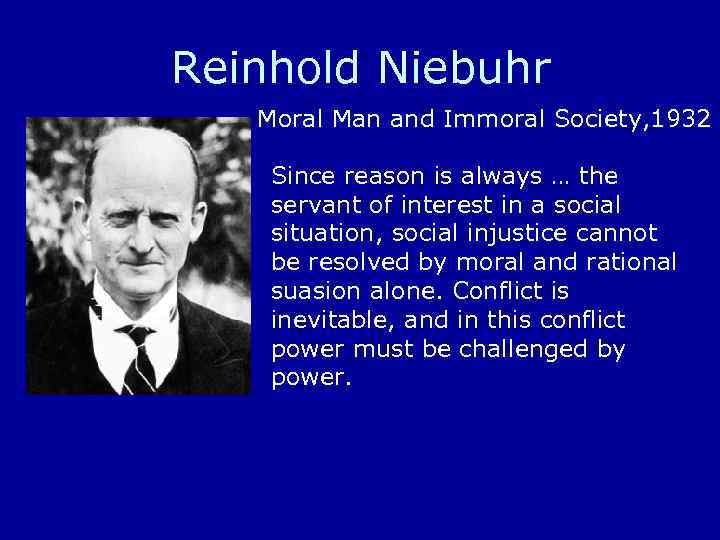
Reinhold Niebuhr Moral Man and Immoral Society, 1932 Since reason is always … the servant of interest in a social situation, social injustice cannot be resolved by moral and rational suasion alone. Conflict is inevitable, and in this conflict power must be challenged by power.
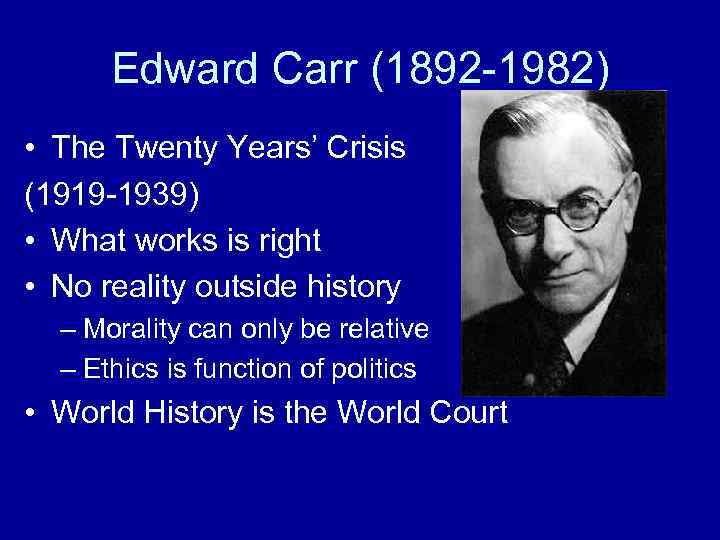
Edward Carr (1892 -1982) • The Twenty Years’ Crisis (1919 -1939) • What works is right • No reality outside history – Morality can only be relative – Ethics is function of politics • World History is the World Court
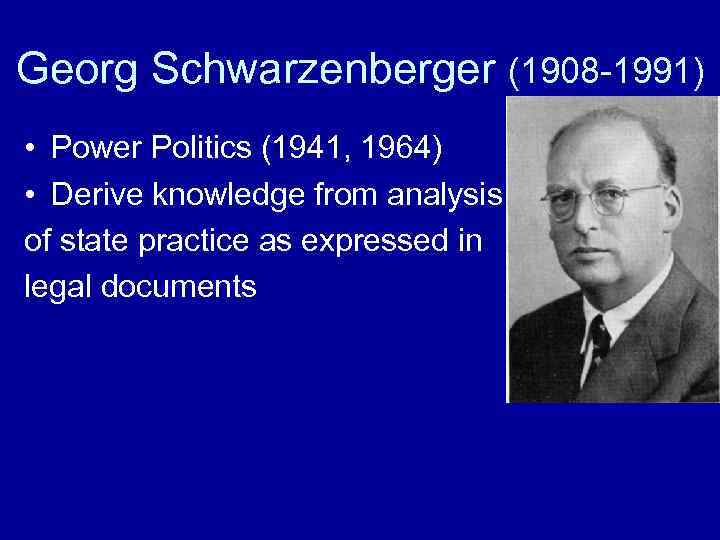
Georg Schwarzenberger (1908 -1991) • Power Politics (1941, 1964) • Derive knowledge from analysis of state practice as expressed in legal documents
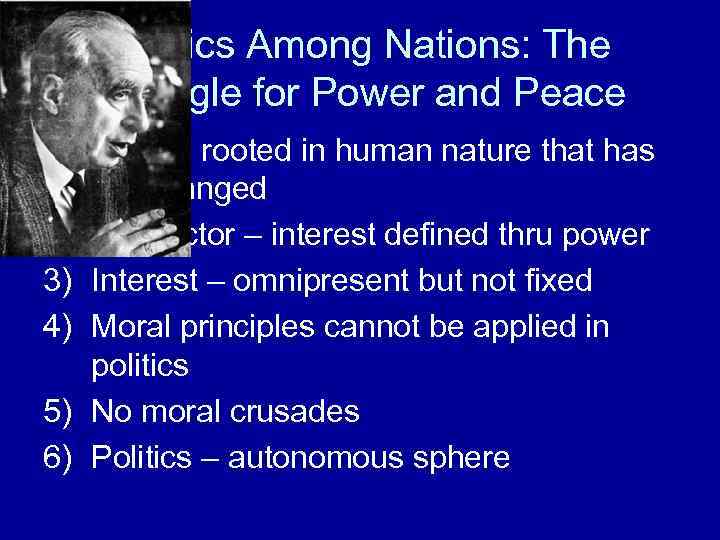
Politics Among Nations: The Struggle for Power and Peace 1) Politics rooted in human nature that has not changed 2) Key factor – interest defined thru power 3) Interest – omnipresent but not fixed 4) Moral principles cannot be applied in politics 5) No moral crusades 6) Politics – autonomous sphere
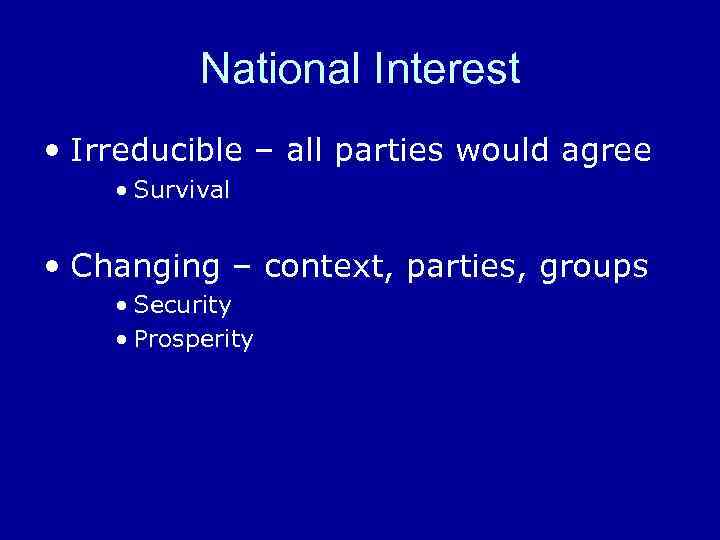
National Interest • Irreducible – all parties would agree • Survival • Changing – context, parties, groups • Security • Prosperity
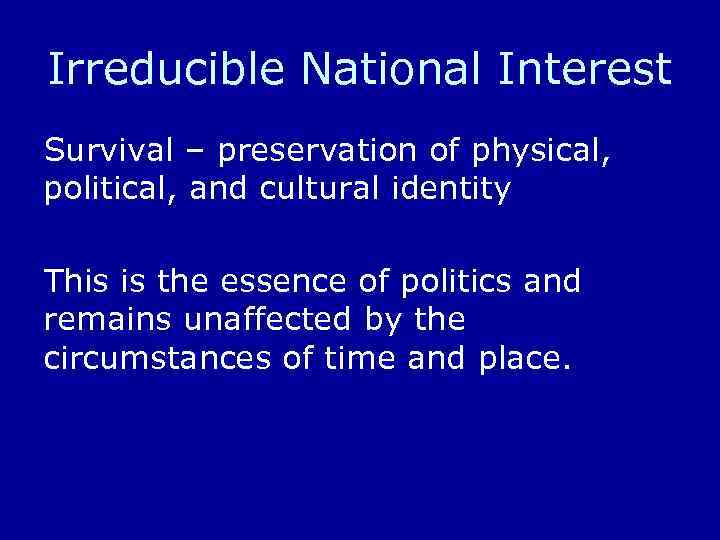
Irreducible National Interest Survival – preservation of physical, political, and cultural identity This is the essence of politics and remains unaffected by the circumstances of time and place.
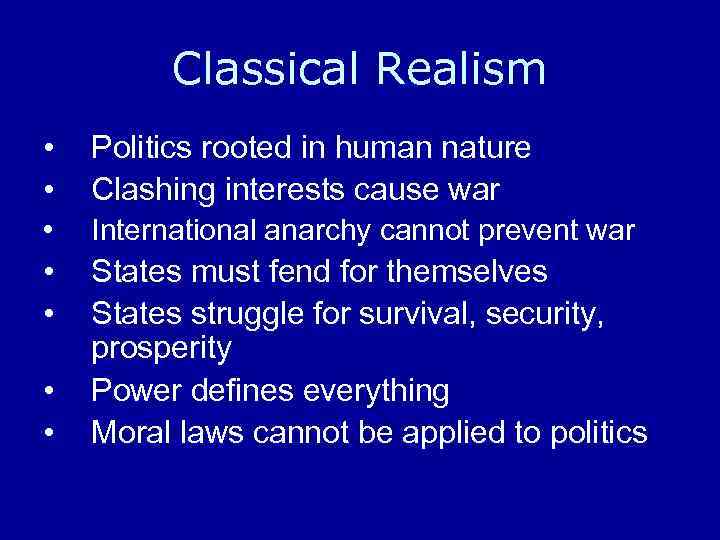
Classical Realism • • Politics rooted in human nature Clashing interests cause war • International anarchy cannot prevent war • • States must fend for themselves States struggle for survival, security, prosperity Power defines everything Moral laws cannot be applied to politics • •
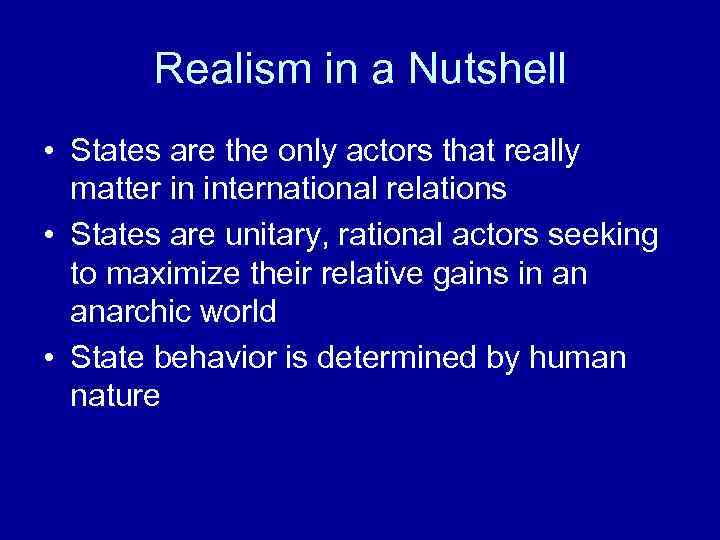
Realism in a Nutshell • States are the only actors that really matter in international relations • States are unitary, rational actors seeking to maximize their relative gains in an anarchic world • State behavior is determined by human nature
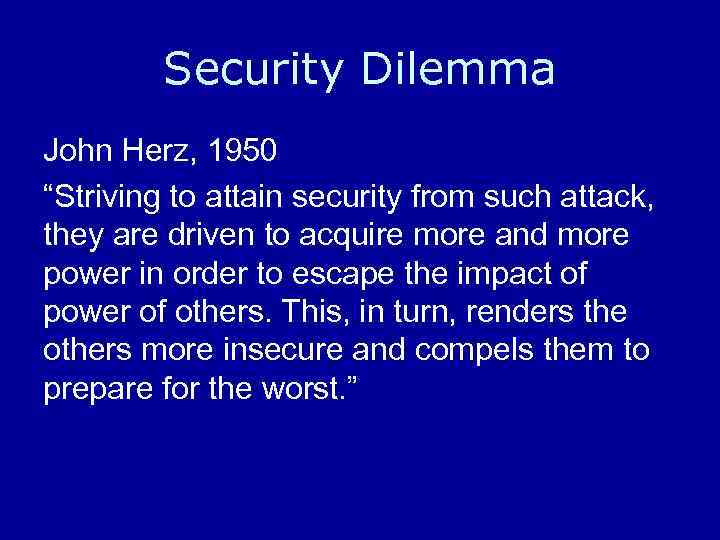
Security Dilemma John Herz, 1950 “Striving to attain security from such attack, they are driven to acquire more and more power in order to escape the impact of power of others. This, in turn, renders the others more insecure and compels them to prepare for the worst. ”
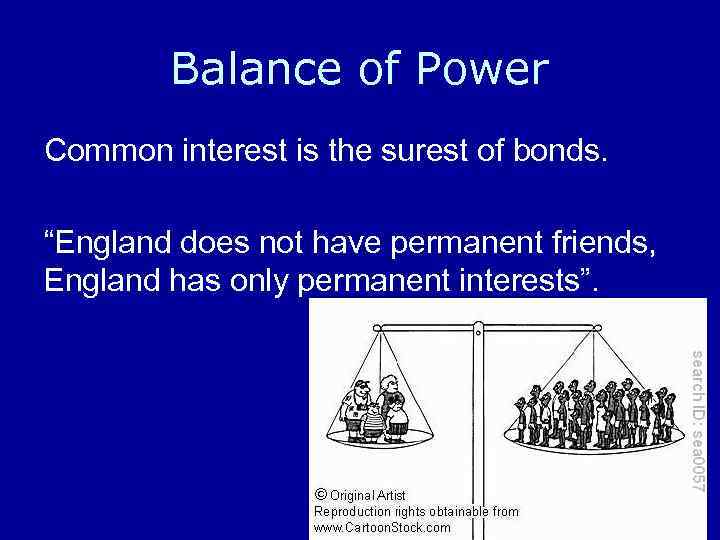
Balance of Power Common interest is the surest of bonds. “England does not have permanent friends, England has only permanent interests”.
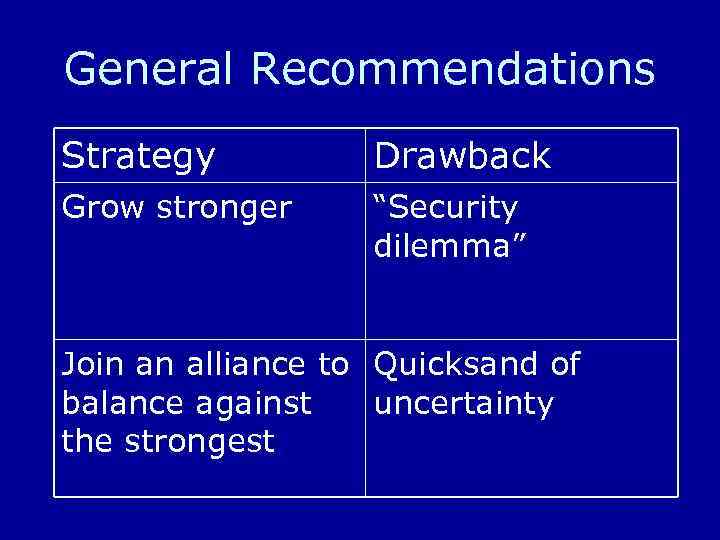
General Recommendations Strategy Drawback Grow stronger “Security dilemma” Join an alliance to Quicksand of balance against uncertainty the strongest
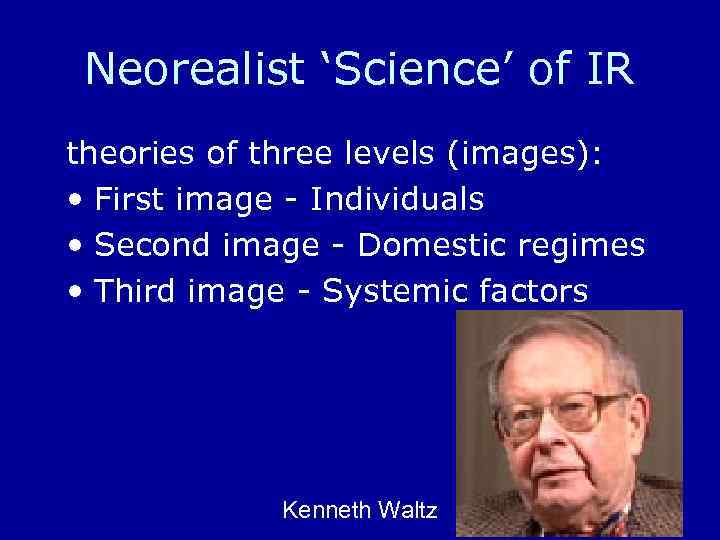
Neorealist ‘Science’ of IR theories of three levels (images): • First image - Individuals • Second image - Domestic regimes • Third image - Systemic factors Kenneth Waltz
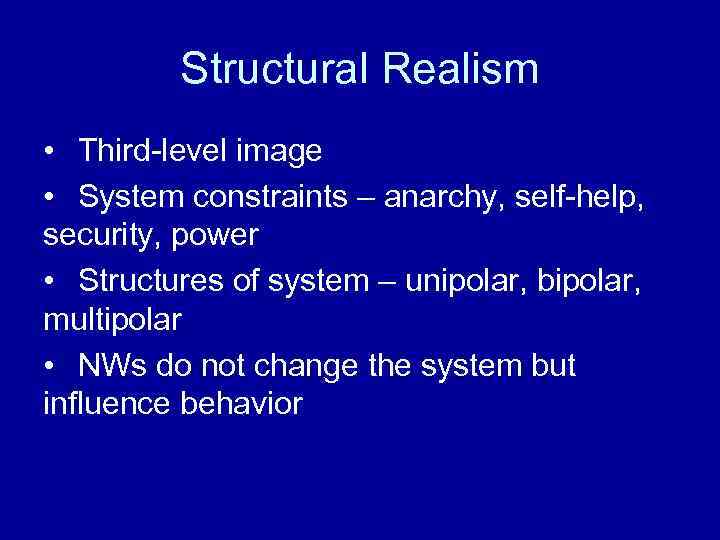
Structural Realism • Third-level image • System constraints – anarchy, self-help, security, power • Structures of system – unipolar, bipolar, multipolar • NWs do not change the system but influence behavior
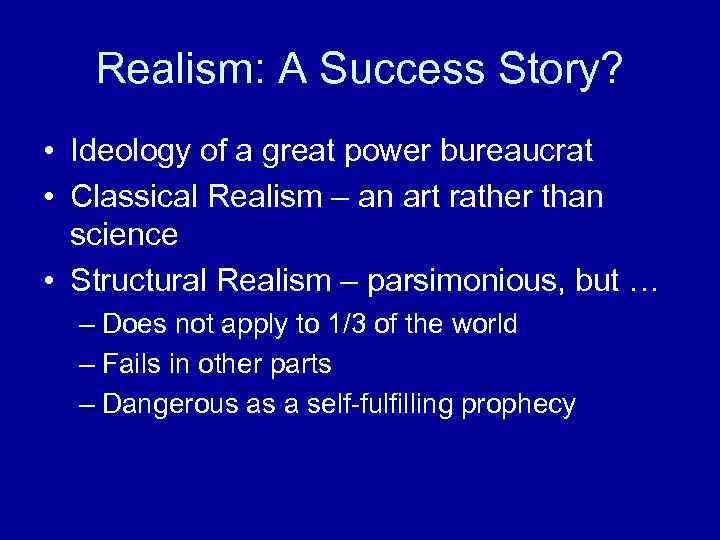
Realism: A Success Story? • Ideology of a great power bureaucrat • Classical Realism – an art rather than science • Structural Realism – parsimonious, but … – Does not apply to 1/3 of the world – Fails in other parts – Dangerous as a self-fulfilling prophecy
Realism.ppt